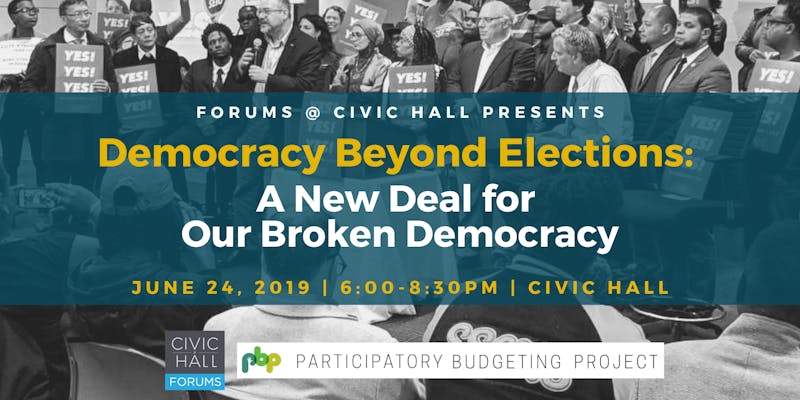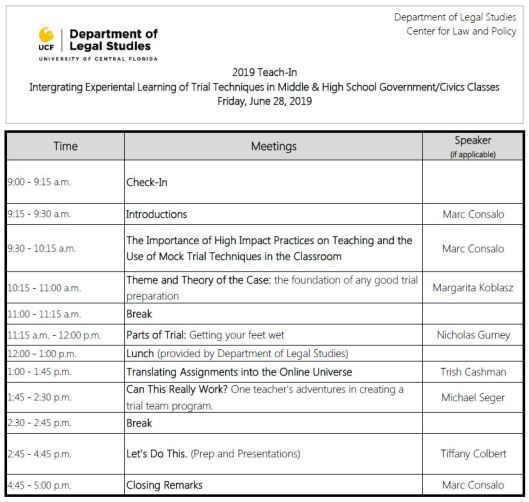Kicking off this Wednesday’s webinar roundup with an enthusiastic reminder to join our Confab call tomorrow! This free call is co-hosted with the Bridge Alliance and will explore using the collaborative platform, Slack, for D&D movement building. We’d love for folks who have used Slack or are still currently using it to join the call and share their experience. The call is tomorrow, June 6th from 2-3 pm Eastern, 11 am-12 pm Pacific. Learn more and register to save your spot here!
Make sure you check out these additional great learning opportunities related to dialogue, deliberation, and civic engagement work! This week’s roundup features events from NCDD sponsor org The Courageous Leadership Project, NCDD member organizations Living Room Conversations and MetroQuest, as well as, from the Tamarack Institute, International Association of Facilitators (IAF), International Associate for Public Participation (IAP2), and more.
NCDD’s online D&D event roundup is a weekly compilation of the upcoming events happening in the digital world related to dialogue, deliberation, civic tech, engagement work, and more! Do you have a webinar or other digital event coming up that you’d like to share with the NCDD network? Please let us know in the comments section below or by emailing me at keiva[at]ncdd[dot]org, because we’d love to add it to the list!
Upcoming Online D&D Events: NCDD June Confab, Courageous Leadership Project, MetroQuest, Living Room Conversations, Tamarack, IAF, IAP2, and more!
NCDD & Bridge Alliance June Confab on Using Slack for D&D Movement Building

Thursday, June 6th
11 am Pacific, 2 pm Eastern
We are excited to co-host another Confab Call at the beginning of June, this time with our friends at the Bridge Alliance to explore the use of the collaboration tool, Slack. On this free call, we will discuss the capabilities of the platform for movement building around civic action and learn more about the development of Bridge Alliance’s new joint project, the Democracy Movement Slack Forum.
REGISTER: http://ncdd.org/29763
Play-in-Action in the Public Sphere: Play, Development and Social Justice
Thursday, June 6th
9 am Pacific, 12 pm Eastern
In June, the Play, Development and Social Justice series will feature the work of practitioners and activists in the areas of afterschool development, civic engagement, and equity of access to the benefits of play. The conversation will explore how play is successfully creating grassroots cultures of creativity, inclusion and democracy. International play scholar and activist Carrie Lobman will be joined by Antoine Joyce, who creates environments for wealthy business people, elected officials, inner city youth and police officers to play together in Dallas; Don Waisanen who is pioneering the use of improvisation and play at the university and in the political arena; and Danielle Marshall who uses play as a vehicle to drive social-emotional learning, teach conflict negotiation, and build community in schools for 20,000 children in Maryland.
REGISTER: https://conta.cc/2GNuYXp?fbclid=IwAR2hGAp5D_ubwu9dKoLUKv8BbVI0rilRTv1u-zdUqnK5QFc_iAVA9ip7ZgY
Online Living Room Conversation – Women, Leadership and Power: 90-Minute Conversation w/ Optional 30-Minute Bonus Round!

Thursday, June 6th
4 pm Pacific, 7 pm Eastern
Women are increasingly sought out and encouraged to assume leadership positions in many walks of life, from business to community organizations to politics. While some call for further changes towards greater equality, others raise cautions about erasing any gender distinctions in an attempt to “make everything the same.” Are there ways the further expansion of women’s rights can complement traditional structures in society or are they destined to be at war? This broad topic on women and leadership can lead to many other conversations. Check out the conversation guide.
REGISTER: www.livingroomconversations.org/event/women-leadership-and-power-90-minute-conversation-w-optional-30-minute-bonus-round/
Tamarack Webinar – Bridging the Gap: Repairing Relationships for Stronger Community Engagement
 Tuesday, June 11th
Tuesday, June 11th
10 am Pacific, 1 pm Eastern
Most of us recognize the need for and importance of engaging the communities we serve. Working to uphold the slogan, “nothing about us without us”, we might try to engage communities as much as possible. But engagement is a two-way street, and people who work in institutions and organizations sometimes find that the communities they hope to engage are hesitant or even resistant to engage. This can often be true when the relationship between institutions and communities is damaged, or where there is a lack of trust in the organization’s ability to engage in an open and honest way. With that in mind, what might those of us who work in institutions and organizations do? Through this webinar Lisa Attygalle and Galen MacLusky, Tamarack’s Directors of Community Engagement and Community Innovation will explore our thoughts on this issue, drawing upon our experiences in supporting community engagement across North America.
REGISTER: https://events.tamarackcommunity.ca/webinar-bridging-the-gap-repairing-relationships-stronger-community-engagement
IAP2 Monthly Webinar – Diversity and Inclusion in P2

Tuesday, June 11th
11 am Pacific, 2 pm Eastern
Carrie McIntosh’s session explores five key lessons learned from working with small communities on BC’s west coast. From closed Facebook groups that house rampant rumour mills, to client frustration that threatens to derail well-intentioned strategies, this session explores them all with a dose of humour. Participants will walk away with a list of practical steps they can take to create meaningful engagement outcomes for their clients and the communities they serve. Read the session description from the 2018 IAP2 North American Conference here.
REGISTER: https://iap2usa.org/event-3076943
The Courageous Leadership Project webinar – Brave, Honest Conversations
 Wednesday, June 12th
Wednesday, June 12th
9 am Pacific, 12 pm Eastern
Some conversations are hard to have. Fear and discomfort build in your body and you avoid and procrastinate or pretend everything is fine. Sometimes you rush in with urgency, wanting to smooth things over, fix them, and make them better. Sometimes you go to battle stations, positioning the conversation so you have a higher chance of being on the “winning” side. NONE OF THIS WORKS. Instead, it usually makes a hard conversation harder; more divided, polarized, and disconnected from others. The more people involved, the harder the conversation can be. I believe that brave, honest conversations are how we solve the problems we face in our world – together.
In this webinar, we will cover: What is a Brave, Honest Conversation ? Why have one? What can change because of a brave, honest conversation? How do you have one? What do you need to think about and do? How do you prepare yourself for a brave, honest conversation?
? Why have one? What can change because of a brave, honest conversation? How do you have one? What do you need to think about and do? How do you prepare yourself for a brave, honest conversation?
REGISTER: www.bravelylead.com/events/bhcfreewebinar
MetroQuest webinar – Millennials to Boomers | How MDOT Involved 6,300 for Its LRTP
 Wednesday, June 12th
Wednesday, June 12th
11 am Pacific | 12 pm Mountain | 1 pm Central | 2 pm Eastern (1 hour)
Educational Credit Available (APA AICP CM)
Complimentary (FREE)
Is traditional public involvement getting old? While transportation matters to residents of all ages, few attend public meetings. That’s why Michigan DOT went online to engage the broader public when it began working on a completely new state long range transportation plan (SLRTP).
Times are changing. On June 12th, find out how Michigan DOT and WSP joined forces to engage 6,300 people to uncover their evolving transportation priorities for the Michigan Mobility 2045 SLRTP. Join Shane Peck, Anita Richardson, Brad Sharlow, and Kyle Haller as they share what they learned about public preferences for modal tradeoffs, infrastructure investments, intelligent technologies, and transit
REGISTER: http://go.metroquest.com/Millennials-to-Boomers-How-MDOTs-LRTP-Involved-6300.html
Training (free): The Nuts & Bolts of Living Room Conversations

Thursday, June 13th
2 pm Pacific, 5 pm Eastern
Join us for 60 minutes online to learn about Living Room Conversations. We’ll cover what a Living Room Conversation is, why we have them, and everything you need to know to get started hosting and/or participating in Living Room Conversations. This training is not required for participating in our conversations – we simply offer it for people who want to learn more about the Living Room Conversations practice. Space is limited to 12 people so that we can offer a more interactive experience. Please only RSVP if you are 100% certain that you can attend.
REGISTER: www.livingroomconversations.org/event/training-free-the-nuts-bolts-of-living-room-conversations-11/
Online Living Room Conversation: The Power of Empathy: 90-Minute Conversation w/ Optional 30-Minute Bonus Round!

Thursday, June 13th
4 pm Pacific, 7 pm Eastern
Empathy goes beyond concern or sympathy. Empathy is stepping into the shoes of another with the intention to better understand and feel what they are experiencing. The power of empathy can bridge our “us vs. them” perceptions and lead to new solutions, improved relationships, better strategies for social change, reduction in loneliness, and realization of our shared human needs and oneness. This conversation is about sharing experiences giving, receiving, and observing empathy. Here is the conversation guide.
REGISTER: www.livingroomconversations.org/event/the-power-of-empathy-90-minute-conversation-w-optional-30-minute-bonus-round/
International Association of Facilitators webinar – Sharing IAF Brand Best Practices
 Friday, June 14th
Friday, June 14th
9 am Pacific, 12 pm Eastern
Sharing IAF Brand Best Practices is a webinar to get inspired by the many ways members, chapters and events are branding their Facilitation Activities.
REGISTER: www.iaf-world.org/site/events/sharing-iaf-brand-best-practices-0
International Association of Facilitators webinar – Becoming a CPF with the IAF
 Wednesday, June 19th
Wednesday, June 19th
8 am Pacific, 11 am Eastern
Making the decision to seek the IAF Certified Professional Facilitator (CPF) accreditation can be hard. Common questions people ask are What’s involved? How much time will it take? Will I meet the requirements? and What if I don’t pass? In response to strong interest from members, we will be exploring these questions at a webinar with hosts that have years of experience as professional facilitators and as IAF Assessors.
Professional Facilitator (CPF) accreditation can be hard. Common questions people ask are What’s involved? How much time will it take? Will I meet the requirements? and What if I don’t pass? In response to strong interest from members, we will be exploring these questions at a webinar with hosts that have years of experience as professional facilitators and as IAF Assessors.
REGISTER: www.iaf-world.org/site/events/webinar-becoming-cpf-iaf-9
 Join the Participatory Budgeting Project and Forums @ Civic Hall for the national kick off of the Democracy Beyond Elections campaign. We are convening to build support for a democracy that deepens participation and civic engagement beyond and between elections, and creates a pipeline for diverse and equitable community leadership.
Join the Participatory Budgeting Project and Forums @ Civic Hall for the national kick off of the Democracy Beyond Elections campaign. We are convening to build support for a democracy that deepens participation and civic engagement beyond and between elections, and creates a pipeline for diverse and equitable community leadership.


 Wednesday, June 12th
Wednesday, June 12th Wednesday, June 12th
Wednesday, June 12th
 Friday, June 14th
Friday, June 14th Friday, June 21st
Friday, June 21st We were joined by Walt Roberts who gave the 45 participants on the call a quick tour of Slack and how the platform streamlines communication by bringing text, email, and direct messaging altogether. The way the platform is designed lends itself well to the growing Democracy Movement Slack Forum (DMFS), in how it offers space for participants to self-organize and create action together. Walt shared with us how this space was developed; growing from the Unrig the Summit 2018 conference and catalyzed by the desire to fix our broken and rigged political system. He discussed the evolution of the working title, the Democracy Movement, and how it is really a movement of many movements, across the spectrum of ideologies.
We were joined by Walt Roberts who gave the 45 participants on the call a quick tour of Slack and how the platform streamlines communication by bringing text, email, and direct messaging altogether. The way the platform is designed lends itself well to the growing Democracy Movement Slack Forum (DMFS), in how it offers space for participants to self-organize and create action together. Walt shared with us how this space was developed; growing from the Unrig the Summit 2018 conference and catalyzed by the desire to fix our broken and rigged political system. He discussed the evolution of the working title, the Democracy Movement, and how it is really a movement of many movements, across the spectrum of ideologies.

 Today we are launching the only news site dedicated exclusively to covering the community of people and organizations seeking to improve American democracy.
Today we are launching the only news site dedicated exclusively to covering the community of people and organizations seeking to improve American democracy.
